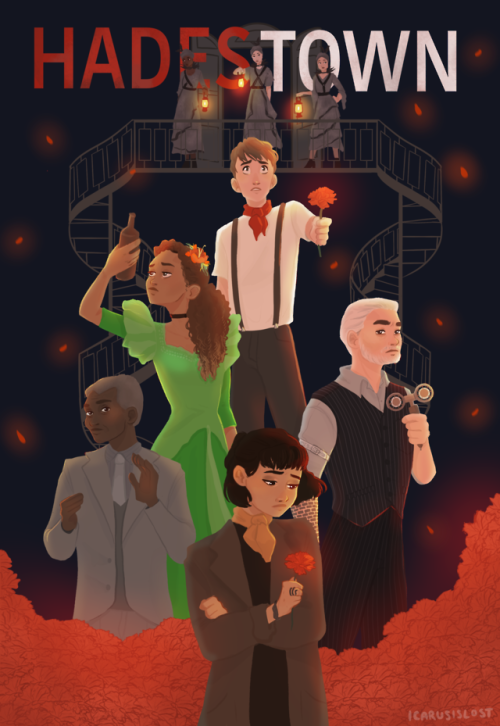

This new power dynamic offers players a chance to bring closure to many of the Greek myths that we not-quite-’90s kids have grown up consuming. HADES Perfectly Caps a Generation of Greek Mythology_1 But Zagreus and his fully-divine heritage allows players to now see eye-to-eye with these figures. The demigods in Riordan’s books are inherently inferior to their godly parents. This new point-of-view encourages the perception that we have grown with the stories.
#HADESTOWN HADES FANART FULL#
Īs Zagreus, players experience Greek mythology from the perspective of a full deity rather than the demigods of Riordan’s books. Through Riordan’s books, we’ve seen the way that malleable stories can evolve with the people that consume them.

Themes of identity and self-discovery are pertinent for a generation in limbo.

#HADESTOWN HADES FANART SERIES#
Heroes builds on the inclusive foundation of the original series by featuring a plethora of queer characters, including the god Apollo himself, to further cement that mythological stories throughout time have applied to people of any race, creed, gender identity, or sexual orientation. In 2015, Riordan introduced his now-older fans to The Heroes of Olympus, a Percy Jackson sequel series that further contextualized this generation’s relationship with mythology. But as we grew up, the series, and our relationship to mythology, grew with us. The final Percy Jackson book was published before my fellow early Gen Z-ers entered high school. Representation is woven into the DNA of Riordan’s stories Uncle Rick characterizes learning differences like ADHD and dyslexia as superpowers, helping to educate a progressive generation. Riordan’s books took it a step further and grounded the stories through a lens that was even more salient to kids at the time. The persisting popularity of Greek myths endures because these stories have always been based in reality, helping people to come to terms with hard truths about their lives. Percy Jackson and Annabeth display glowing eyeballs. Now, Hades allows us to return to the stories those of born in the late ’90s have grown up on and revisit them in a new light. Cultural artifacts like Hercules and Percy Jackson have made this “in-between generation” veterans of Greek mythology. This domain renders him the patron Greek god of the ill-defined generation between Millennials and Generation Z-one that has come of age alongside a cycle of adaptations of Greek myth. Caught between the Underworld and the surface, Zagreus becomes a god of in-between. This fascinating deity must rule over something, as all Greek deities must. Hades ’ Zagreus lacks the kind of godly domain that characterizes others of his ilk. Like Zagreus, this generation is newly entering adulthood and blazing their own paths with a lifetime of mythological upbringing behind them.

Hades is the perfect game for the Percy Jackson generation because Zagreus is an avatar for people who grew up on Rick Riordan’s immensely popular books. The game’s mythological interpretation characterizes Zagreus as the rebellious prince of the underworld, incessantly seeking to reach the surface and escape his dull, dutiful daddy. Moreover, it makes him the perfect playable character for developer Supergiant Games’ Hades, which officially launched v1.0 on September 17. That loose mythological foundation is precisely what makes Zagreus the ideal figure for conjecture. In Greek mythology, Zagreus is an ill-defined member of the godly pantheon, identified only through vague references in fragmentary stories.


 0 kommentar(er)
0 kommentar(er)
